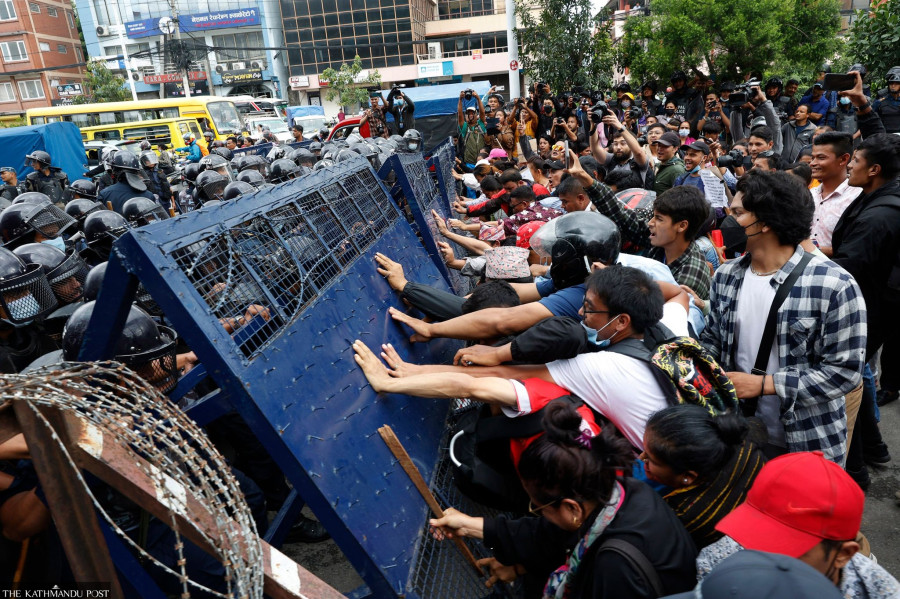Editorial
Looking ominous
Public anger over the co-operatives crisis could soon boil over. Political parties must act now to avert a disaster.
The winter session of the Parliament has ended with effect from midnight Sunday amid tussles between ruling and opposition parties. The government opted to end the bill session at a time when the main opposition Nepali Congress had been asking for a parliamentary probe into Deputy Prime Minister and Home Minister Rabi Lamichhane, who is accused of embezzling millions of rupees of public deposits in cooperatives. (On Monday, new details emerged of Lamichhane’s misappropriation of Rs20 million from a Butwal-based cooperative.) Congress leaders in and outside the Parliament have been coming up with different reports and details to back their claim for a House panel. Those from the ruling coalition including Prime Minister Pushpa Kamal Dahal and CPN-UML chair KP Sharma Oli however have been trying to brush aside the matter as nothing more than Congress leaders’ knee-jerk reaction after they were kicked out of the government. Lamichhane’s party Rastriya Swatantra Party is naturally dismissive of the demand.
In the past weeks, the two sides hardened their positions instead of trying to find a common point. This confrontational approach is concerning given the gravity of the cooperative crisis that has engulfed the country. If not addressed on time, the crisis may invite consequences beyond imagination. If the details and the scenarios presented by experts and study committees are anything to go by, it may destroy the national economy and may even disturb social harmony.
In the past three decades, government and other concerned agencies have formed around 10 panels to study cooperative problems and offer recommendations. The latest of these was the government-formed taskforce led by Dr Jaykant Raut, which submitted its report to the prime minister in September last year. Even the Lamichhane-led RSP tasked a team led by the party’s vice-chair and lawmaker Swarnim Wagle to study the matter. The Wagle-led team also highlighted the urgency of the matter.
So there is no dearth of studies and recommendations. Most of them raise an alarm. Each has underscored the need for an all-powerful and autonomous body to intervene in the crisis-ridden cooperatives and start heeding the concerns of depositors. Addressing this issue may require formulation of new laws as well as amendments to the existing ones; the task of cleaning up the mess in this sector will not be accomplished with a business-as-usual approach. Once such entities begin their work and start to return depositors’ money, in phases if not at once, a semblance of the public’s confidence in the sector (and, by extension, in the country’s major political parties) will be restored.
If the ruling-versus-opposition standoff continues, things will get worse still. This in turn may invite multifaceted crises. The new Parliament session which must start within a few weeks may not function smoothly and the budget-making process may get affected. Social media is abuzz with interviews and video clips of the cooperative victims and the public anger over the issue is palpable. Their anger may soon take a violent form. We urge the political forces to immediately find a common ground in the larger public interest and start working to untangle the cooperatives’ crisis without more ado.




 8.67°C Kathmandu
8.67°C Kathmandu














